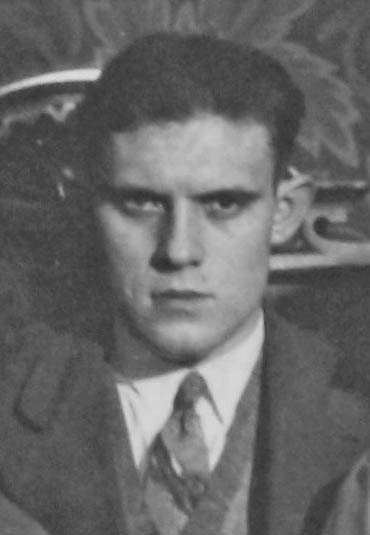Search for Names, Places and Biographies
Already layed Stumbling Stones
Suche
Bruno Krüger * 1911
Bramfelder Straße 104 (Hamburg-Nord, Barmbek-Nord)
HIER WOHNTE
BRUNO KRÜGER
JG. 1911
EINGEWIESEN 1938
HEILANSTALT LANGENHORN
"VERLEGT" 19.3.1941
HEILANSTALT RICKLING
ERMORDET 25.7.1943
Bruno Gustav Max Krüger, born on 25 Jan. 1911 in Gerswalde (Uckermark District), admitted to the Langenhorn State Hospital (Staatskrankenanstalt Langenhorn) on 5 May 1938, transferred to the "Holstein Sanatoriums for Patients suffering from Nervous Diseases and Alcoholism” in Rickling (District of Segeberg) on 19 Mar. 1941, died there on 25 July 1943
Bramfelder Strasse 104 (Barmbek Nord)
Bruno Gustav Max Krüger was born on 25 Jan. 1911 in the village of Gerswalde in the Uckermark region of Brandenburg as the son of Ida Louise Wilhelmine Krüger. His father died in the First World War. We know little about Bruno Krüger’s childhood and youth; he went to school in Gerswalde, and later in Hamburg. Bruno Krüger loved music, played soccer, and enjoyed fishing, even in his later years as a young man.
Ida Krüger left her native Brandenburg with her son and settled in Hamburg in 1920. There she married twice. In 1925, after leaving school, Bruno Krüger worked as a transport worker, later as a factory worker at a company called "Hammonia,” followed by a long period of unemployment. Only when he retrained as a lathe operator did he find work again.
In 1927, he met Johanna Sophie Charlotte Möller. On 30 Jan. 1932, they entered into marital union. Johanna Möller had been born on 7 Nov. 1904 in what was then still the independent town of Wandsbek. The couple lived at Bramfelderstrasse 100, House 5, where Johanna Krüger had also lived before the wedding. The couple had three children overall.
Bruno Krüger’s mother died on 25 Jan. 1937, on his twenty-sixth birthday. She suffered a heart attack at Hamburg’s main train station on the way to the birthday party.
Less than a year later, on 14 Jan. 1938, Bruno Krüger was admitted to the Friedrichsberg State Hospital (Staatskrankenanstalt Friedrichsberg) due to "states of agitation.” At the time, his wife was pregnant with their youngest daughter.
When he was admitted, he stated that he had been suffering for some time from complaints such as poor sleep, loss of appetite, and headaches; he often felt tired and listless. He suspected oil and petroleum fumes at work as the cause. Although he had changed jobs, there had been no improvement. Bruno Krüger believed he was in the Barmbek General Hospital.
On 27 Jan. 1938, barely two weeks after his admission, he received his first inoculation with malaria-infected blood, the so-called malaria therapy. About a quarter of a year later, on 5 May 1938, he was transferred to the Langenhorn State Hospital (Staatskrankenanstalt Langenhorn).
The diagnosis at this time was "progressive paralysis.” In June of the same year, his medical record stated that Bruno Krüger looked miserable and very pale. His working capacity was still intact. However, the report continued, he was not clear about the last events of his illness. A few weeks later, it was noted that he had been talking loudly to himself, articulating confused content. From July 1938, malaria therapy was again applied. (Its importance for the treatment of progressive paralysis had been discovered by the Austrian psychiatrist Julius Wagner-Jauregg, who was awarded the Nobel Prize for Medicine in 1927. It was used until the advent of antibiotics).
In Bruno Krüger’s case, the malaria inoculations were by no means without complications. The healing success seems to have been rather minimal. In Oct. 1938, Bruno Krüger apparently showed constant slight motor restlessness and continued to talk loudly and confusedly to himself. This description was repeated in the following period. According to a note in the patient file dating from May 1940, Bruno Krüger performed agricultural work diligently and willingly. At the beginning of 1941, he was reportedly unchanged in psychological terms.
Bruno Krüger was transferred to the "Holstein Sanatoriums for Patients suffering from Nervous Diseases and Alcoholism” in Rickling (District of Segeberg) on 19 Mar. 1941. We do not know what his life was like there. However, the conditions in the sanatoriums were inadequate in terms of provisions and nursing care. Bruno Krüger died in Rickling on 25 July 1943 of progressive paralysis and pulmonary tuberculosis, according to the death register extract.
He left behind his wife and three children. He did not come to know his grandchildren and great-grandchildren anymore. His children had no information concerning his fate.
Translator: Erwin Fink
Kindly supported by the Hermann Reemtsma Stiftung, Hamburg.
Stand: August 2021
© Ingo Wille
Quellen: Adressbuch Hamburg; StaH 332-5 Standesämter 13727 Heiratsregister Nr. 39/1932 Krüger/Möller; 352-8/7 Staatskrankenanstalt Langenhorn Abl. 1/1995 Nr. 24928 Bruno Krüger; Standesamt Boostedt-Rickling, Sterberegister Rickling Nr. 77/1943; Institut für Geschichte und Ethik der Medizin, Hamburg: Patientenakt 80866 der Psychiatrischen und Nervenklinik der Hansischen Universität Hamburg (Friedrichsberg); Auskünfte der Angehörigen Andrea Wohlert; https://de.wikipedia.org/wiki/Julius_Wagner-Jauregg (Zugriff am 9.3.2021).


